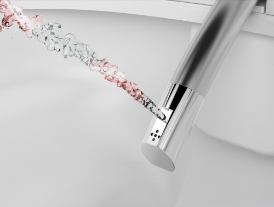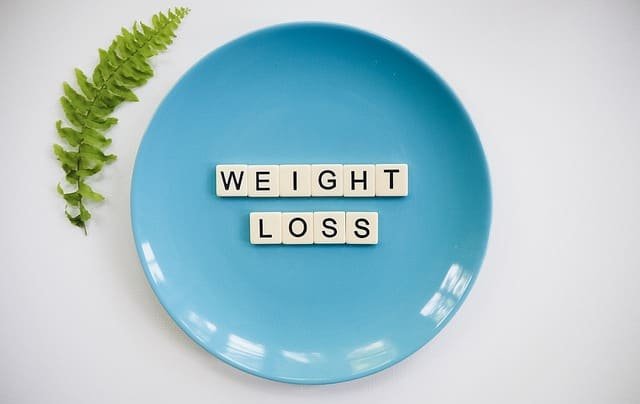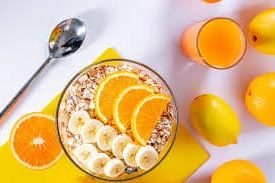WEIGHT LOSS SNACKS
Weight loss snacks are food options specifically chosen to support weight management goals. These snacks are typically low in calories but high in nutrients, providing a combination of macronutrients (proteins, fats, and carbohydrates) in appropriate portions. They aim to curb hunger, maintain energy levels, and prevent overeating during main meals.
The goal of weight loss snacks is not only to provide sustenance between meals but also to prevent overeating and make healthier choices. These snacks play a role in maintaining a balanced diet while creating a calorie deficit conducive to weight loss, when combined with a healthy overall eating plan and regular physical activity.
Contents
WHAT A HEALTHY WEIGHT LOSS SNACK CONTAIN:
The best weight loss snacks usually contain:
- Protein: Foods rich in protein help promote a feeling of fullness and support muscle maintenance. Examples include Greek yogurt, cottage cheese, hard-boiled eggs, lean meats, and nuts.
- Healthy Fats: Including sources of healthy fats, like avocados, nuts, seeds, and olive oil, can enhance satiety and provide essential fatty acids necessary for the body’s functions.
- Complex Carbohydrates and Fiber: Foods rich in complex carbohydrates and fiber offer sustained energy and keep hunger at bay. Whole grains, fruits, vegetables, and legumes fall into this category.
- Portion-Controlled Snacks: Opting for pre-portioned snacks or portioning snacks yourself can help manage overall calorie intake.
- Low-Calorie Options: Choosing snacks that are low in calories but high in volume, such as fruits and vegetables, can help control hunger without adding excess calories.
Examples of weight loss snacks include carrot sticks with hummus, apple slices with almond butter, Greek yogurt with berries, mixed nuts in moderation, air-popped popcorn, or veggie sticks with a light dip.

WHY WEIGHT LOSS SNACKS?
In the quest for weight loss, adopting a healthy eating pattern is pivotal. Among the various components of a balanced diet, snacking plays a significant role. While once considered an obstacle in weight management, snacks have now evolved into an essential tool for maintaining energy levels, controlling hunger, and supporting fat loss. Optimal snacking involves choosing nutrient-dense options that provide sustenance without compromising on taste or satiety.
The primary objective of healthy snacking is to fuel the body with necessary nutrients, keeping cravings at bay and preventing overindulgence during main meals. This approach promotes a steady metabolism and helps in maintaining a calorie deficit crucial for weight loss.
Key Components of Healthy Snacks:
• Balanced Macronutrients: An ideal snack should contain a combination of macronutrients, including protein, healthy fats, and complex carbohydrates. Protein contributes to satiety and helps maintain muscle mass, while healthy fats provide sustained energy. Complex carbohydrates, such as those found in fruits and whole grains, offer a steady release of energy, preventing spikes in blood sugar levels.
• Portion Control: While snacking is beneficial, portion control is crucial. Even healthy snacks can contribute to excess calorie intake if consumed in large quantities. Practicing portion control ensures that the calorie intake remains within a healthy range.
• Nutrient Density: Opt for snacks that offer nutritional value. Fresh fruits, vegetables, nuts, seeds, and dairy products like Greek yogurt or cottage cheese are nutrient-dense options that provide vitamins, minerals, and fiber essential for overall health.
Healthy Snack Ideas for Weight Loss:
- Greek Yogurt Parfait: Layer Greek yogurt with fresh berries and a sprinkle of nuts or seeds. It’s a protein-packed, satisfying treat.
- Vegetable Sticks and Hummus: Crunchy veggies like carrots, cucumbers, and bell peppers paired with hummus offer a delightful blend of fiber, vitamins, and healthy fats.
- Hard-Boiled Eggs: A convenient and protein-rich snack that helps stave off hunger pangs and supports muscle maintenance during weight loss.
- Avocado Toast on Whole-Grain Bread: Mashed avocado on whole-grain toast provides healthy fats and fiber, keeping you full for longer.
- Air-Popped Popcorn: A low-calorie whole grain snack when prepared without added butter or excessive salt.
- Mixed Nuts: A small handful of unsalted nuts delivers a mix of healthy fats, protein, and fiber, making for a satisfying snack.
- Tuna Salad Lettuce Wraps: Tuna mixed with veggies wrapped in lettuce leaves creates a flavorful, low-calorie snack.
- Chia Seed Pudding: Chia seeds soaked in almond milk topped with fruits or nuts offer a nutrient-rich and filling option.
- Cottage Cheese with Fruit: High-protein cottage cheese paired with fruits like pineapple or berries provides a blend of protein and natural sweetness.
- Homemade Veggie Omelette: Incorporating vegetables like spinach, tomatoes, or mushrooms into a small omelette is an excellent protein-rich snack option.






